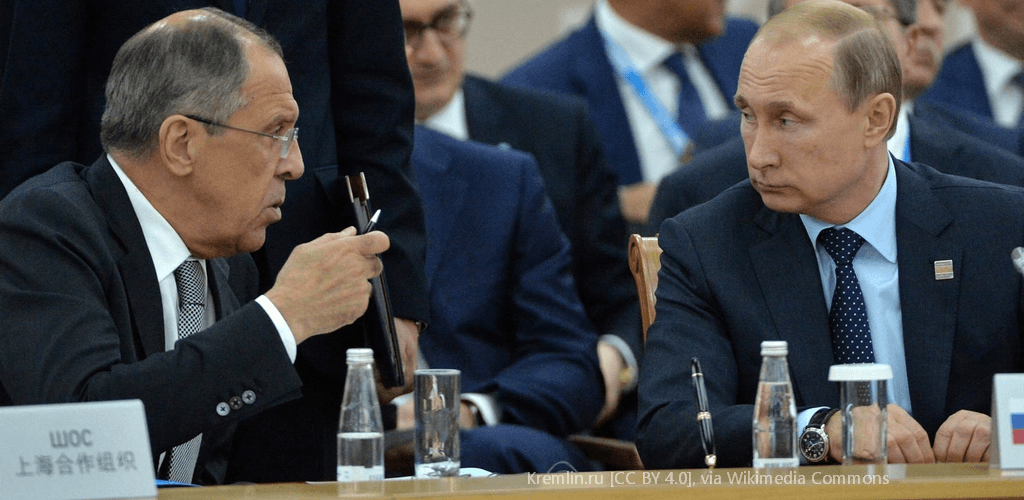Wherever one looks, Russian foreign policy is missing the mark. Ukraine continues to integrate into European institutions, with a liberalized visa regime put into force in June 2017 and Ukraine designated as an aspirant country by NATO in March 2018. In the United States, President Donald Trump has largely preserved and occasionally gone beyond the Russia policy of his predecessor, even if his muted criticism of Russia stands out in stark contrast to the rhetoric of other members of his administration. In Europe, the electoral gains of Russian-backed Euroskeptic parties in France, Germany, and Italy have thus far failed to shatter the EU’s unity in favor of extending economic sanctions against Russia or prevent an unprecedented wave of diplomatic expulsions. Nor has the messy process of Britain’s exit from the European Union distracted London from, or led it to abandon, its role helping to safeguard European security; London’s still unfolding response to Moscow’s use of a nerve agent in the small English town of Salisbury makes that clear.
It is against this backdrop that Russia’s foreign policy community is growing increasingly critical of their country’s conduct on the international stage, taking aim at the misconceptions underlying its policies towards Ukraine, the United States, and Europe. Their prescriptions are sound. However, they belong to a different time, one when Russia was not yet regarded as a rogue state by much of the international community. The lessons being learned are doubtless important, but it will take either a sea change in Russian foreign policy or the transformation of Russia’s external environment for it to become possible for Moscow to effectively apply them.
Ukraine
As Jeffrey Mankoff predicted in 2014, Russia’s policy towards Ukraine—which aims to forcibly prevent Kyiv’s integration into Europe—has succeeded primarily in “bolster[ing] Ukrainian nationalism and push[ing] Kyiv closer to Europe.” According to Dmitri Trenin, head of the Carnegie Moscow Center and the author of a recent article in Russia in Global Affairs, the crisis in Russo-Ukrainian relations owes a great deal to Moscow’s failure “to take Ukraine seriously and comprehensively, and to study it soberly, without emotions.” Trenin, who has long advocated embracing Russia’s European identity and abandoning its pursuit of a sphere of influence in the post-Soviet space, rightly argues that Russia has “ignor[ed] the real Ukraine” by denying the country’s independence from Russia and chasing a dream of post-Soviet integration.
Reconciling Russia’s determination to remain the ultimate arbiter in the post-Soviet space with the reality of its trouble-making role in the region is no easy task, but Trenin’s insistence that “[t]he ‘Russian world’ concept has the right to exist … in the sphere of language, culture, religion, and other humanitarian issues” overlooks the irreversible loss of that concept’s appeal and, indeed, its viability. As Igor Zevelev has noted, the concept has “become synonymous with war” for Ukraine’s government and people and viewed with distrust throughout the rest of the region. That is not an easy perception to alter. Even if Moscow ceases to view soft power as “the projection of hard power,” as put by Rosneft spokesman Mikhail Leontiev, its soft power assets will find few takers in the region, which has written Vladimir Putin’s Russia off as implacably hostile.
The United States
Similarly, the proposals of Russia’s foreign policy community for reforming Russia’s policy towards the United States are simultaneously long overdue and no longer applicable. Association with Moscow is now so toxic in Washington that for many legislators from both parties, cooperation on issues of mutual concern, from cyber-security to terrorism, has become unacceptable. Much like the Iran hostage crisis cast a long shadow over Iranian-American relations and precluded genuine engagement for years to come, Russia’s alleged interference in the 2016 presidential election is likely to define the Russian-American relationship and make reconciliation impossible for the foreseeable future.
In this light, the findings of a recent report by Vneshnyaya Politika — a Moscow-based advisory group which is home to leading analysts like Andrei Tsygankov, Andrei Sushentsov, and Sergei Markedonov — are today of limited value. The report blames the state of Russian-American relations on Moscow’s ignorance of American politics, urging Russia’s leaders to “finally figure out how the American political system works,” before recommending that they play the lobbying game in Washington. Andrei Kortunov, director-general of the foreign ministry-linked Russian International Affairs Council, concurs, arguing in an article published by the Valdai Discussion Club that Moscow must “change its tactics towards Washington” in an admission that its bet on Donald Trump has not paid off. Kortunov suggests doing away with “propaganda,” and, in its place, repealing the Dima Yakovlev Law and allowing American non-governmental organizations to return to Russia.
Although the moves proposed could only improve the Russian-American relationship, they cannot repair it. Putting aside the improbability of lobbying efforts succeeding and Russia welcoming back the likes of the National Endowment for Democracy, piecemeal concessions and gestures of goodwill would do nothing to address the fundamental issues plaguing the relationship, from interference in domestic affairs to challenges to international law.
Kortunov does well to remind readers that what he calls the ‘deep state’ is composed of “rationally thinking professionals” with “considerable interaction with Moscow” who “can hardly be considered stubborn paranoids, exalted conspiracy theorists, or genetic Russophobes.” But the “‘bottom-up’ approach” he favors, whereby Russian officials build ties with the ‘deep state’ instead of waiting for the next high-level summit to take place, cannot succeed under present circumstances. Washington has neither the desire nor the political will to institutionalize cooperation with Moscow and will not have either for a while.
Europe
In Europe, where it appears that no election or referendum can take place without talk of Russian meddling, all eyes are on Russia’s links to Euroskeptic parties. Recognizing that Russia’s European partnerships have failed to secure the lifting of economic sanctions against Russia while allowing establishment parties to “daub [Russia] in tones of brown,” a new report by the Moscow-based RANEPA urges Russia to reconsider its support for Europe’s right-wing movements. Rarely do Russia’s far-right allies enter government, it notes, adding that Trump’s failure to translate his pro-Russian campaign rhetoric into policy suggests that his European counterparts may find themselves similarly constrained once in office.
However, as with the United States, the EU’s grievances concerning Russia go well beyond its subversive marriages of convenience with parties like France’s National Front and Germany’s Alternative für Deutschland. Russia has challenged the EU’s institutions and values, invaded neighboring states to prevent them from integrating into Europe, and tried to coerce EU member-states using demonstrations of conventional military force as well as hybrid means. How the cessation of Russia’s support for Europe’s far-right parties—a mere part of an ideologically diverse range of parties Russia backs—would lead to lasting, meaningful changes in the EU-Russia relationship is unclear. Nor would it be enough for Moscow to end its support for ultra-conservative movements in Europe for its opponents to stop associating Russia with far-right ideas; Russia’s conservative turn since Putin’s return to the presidency in 2012 has guaranteed that.
That Russia’s foreign policy community is reflecting on the mistakes that have left the Kremlin in its present predicament is reassuring but ultimately of little short- or mid-term value. In no small part that is thanks to the marginalization of Russia’s diplomats to the outskirts of the country’s foreign policy decision making. In all three cases—Ukraine, the United States, and Europe—what is required for Russia to be able to apply the lessons it has learned is nothing short of either a sea change in Russian foreign policy or the transformation of Russia’s external environment. For now, these lessons are too little, too late.










